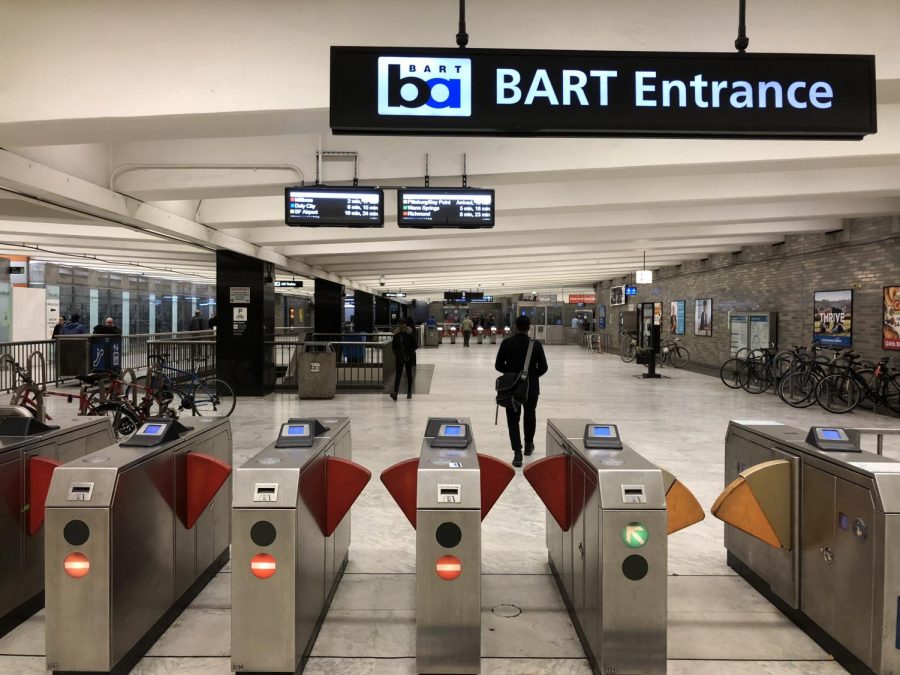March 2, 2018
For many Miramonte students, BART has proven to be a very reliable and safe way to travel around the Bay Area in their free time. Although appreciated by many, a large portion of BART riders have not been paying their fare fees and are simply walking through emergency exits or climbing the barriers. The BART board has recently approved a new fare inspection program effective January 1, 2018, in order to eliminate the fare evaders who take advantage of the relaxed fee management.
For the first month after being implemented, if a rider could not present their ticket to the ticket inspector, they were given a warning citation. Later on, the penalties for adults found without a ticket after the month of January became a fine for 75 dollars, and the fine for a child became 55 dollars. If the evader fails to pay the fee, they could be arrested.
Some are disappointed with how minimal the repercussions are for the evaders. For example, Director Debora Allen expressed her frustration regarding the criminal penalties. Evaders will only be criminal charged if they break the law twice in a span of a year. Allen worries that those who are repeat offenders will not be caught three times in one year. BART will have to hire six community service officers to walk through the cars and stand on the station platforms strapped with body camera to record interactions they have with passengers. Other independent police auditors will be checking the recordings to ensure that there is fair treatment of every passenger on BART.
According to the Mercury News, BART loses approximately $25 million per year due to the fare evaders failing to purchase the appropriate ticket before boarding the trains. In efforts to prohibit free riders, the board approved a “proof-of-payment” system that entails ticket inspectors, new barriers, closed off elevators, and enforcement campaigns. These changes would cost the company close to $800,000 the first transition year, and would continue to require around $750,000 of funding per year. Although some BART board members consider the proposition to be expensive, Police Chief Carlos Rojas explains that “it’s really about paying their fair share so we can make BART as clean and safe as possible.” Rojas, like other BART employees, acknowledges that although this new system may not stop consistent offenders and all evasion issues, it will help reduce the issue at hand.
In sixth months, BART’s board plans to reconvene to discuss the success of the new program and how effective it is in action.







